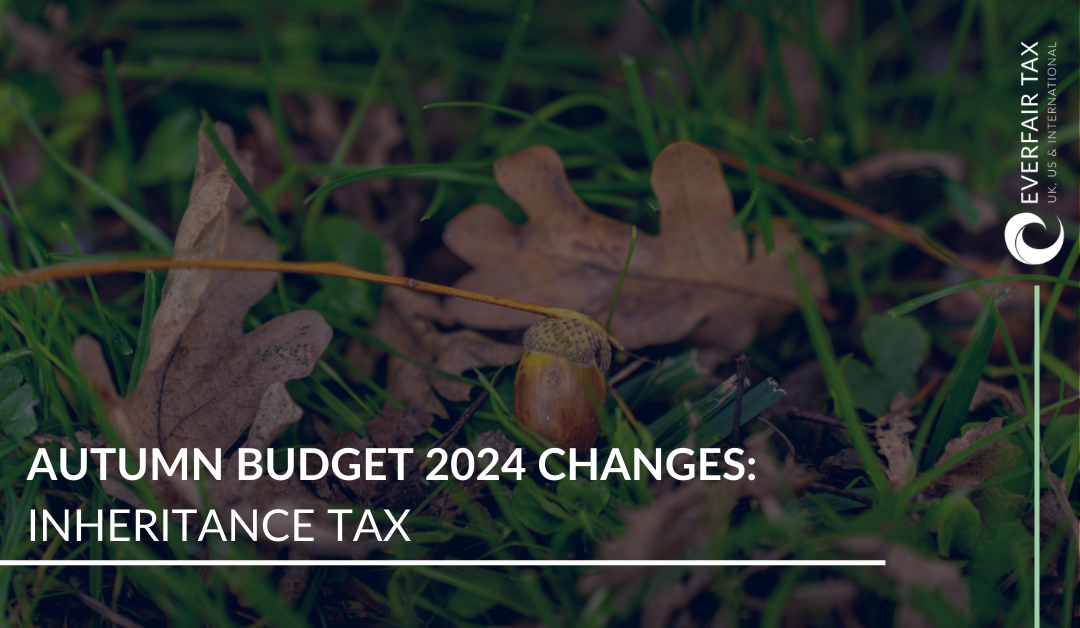Inheritance Tax for Settlor Interested Offshore Trusts
5 April 2023
Inheritance tax for settlor interested offshore trusts
In the previous part of our series on offshore trusts we considered the UK capital gains tax treatment of beneficiary-taxed offshore trusts. In this sixth part of our series we consider the inheritance tax (IHT) treatment of settlor interested offshore trusts
This is part 6 of our Offshore Trusts blog series, written by our Associate Director Lawrence Adair. Read part one here: ‘All you need to know about Offshore Trusts’. Part two here: ‘Residence Positions and Offshore Trusts’. Read part three here: ‘Settlor-Interested Offshore Trusts’ . Read part four here: ‘Beneficary-Taxed Offshore Trusts’ Read part five here: ‘Capital Gains Tax on Beneficiary-Taxed Offshore Trusts’

General exposure to IHT
There are no specific IHT provisions for offshore trusts – provisions apply equally to UK and offshore trusts.
The scope of IHT is primarily based on domicile and situs of assets as follows:
UK domiciles: Worldwide assets
Non-UK domiciles: UK assets only (non-UK assets are regarded as ‘Excluded Property’)
Importance of settlor’s domicile
For trusts, it is the domicile of the settlor when assets first became comprised in the trust that is relevant. The residence of the trustees is not important for IHT.
So if the settlor was non-UK domiciled when the assets first became comprised in the settlement, the scope of IHT for the trust is limited to its UK assets. This is so even if the settlor’s domicile subsequently changes, subject to one exception. Trusts whose settlor is a ‘formerly domiciled resident’ are subject to IHT on their worldwide assets regardless of the settlor’s previous domicile. A ‘formerly domiciled resident’ is someone who is UK born, has a UK domicile of origin and is UK resident for the tax year and at least one of the two preceding tax years.
Assets subsequently added to the settlor’s trust and transfers between trusts
If funds are subsequently added to a trust, the settlor’s domicile position is revisited. It is, though, possible to keep the original and added funds separated for excluded property purposes.
The settlor’s domicile position is also revisited where there is a transfer between settlements. If they are UK domiciled at the time, the transferee settlement cannot qualify.
Situs of assets for IHT purposes
The situs of assets for IHT purposes is based on common law principles. The situs of some of the more common types of assets are given below:
Registered shares and securities: where the register is held
Land and property: where the land is located
Bank accounts: where the branch is located
Simple debts: where the borrower resides
Specialty debts: where the deed is held (unless the debt is secured solely on UK property)
Partnership interest: where the business is carried on
LLP interest: as for registered shares and securities
‘Excluded property trusts’ and use of non-UK underlying companies
Trusts set up by non-UK domiciliaries are often referred to as ‘Excluded Property Trusts’. This is because they typically only hold non-UK situs assets (i.e. excluded property) to keep the trust outside the scope of IHT.
If there is a desire to hold UK assets these will typically be held via a non-UK underlying company. This adds a corporate veil over the assets meaning the trust still only holds non-UK assets. This solution does not apply for UK residential property interests which since 2017 have been subject to special provisions.
UK residential property interests from 2017
From 6 April 2017, certain UK residential property interests are not excluded property despite them being non-UK situs assets under the situs rules. The interests concerned include:
- interests in non-UK partnerships and closely held non-UK companies, to the extent their value is attributable to UK residential property;
- loans financing the acquisition or enhancement of UK residential property and residential property interests; and
- collateral put up for such financing.
Furthermore, proceeds realised from the disposal of residential property interests (partnerships and companies) and the repayment of loans remain exposed to IHT for two years afterwards.
Gift with reservation of benefit
Where the settlor of a trust is also a beneficiary, gift with reservation of benefit provisions apply which effectively mean trust assets remain within the settlor’s estate for IHT purposes. However, excluded property rules take priority over gift with reservation rules. Therefore, property which qualifies as excluded property is not subject to the gift with reservation provisions.
Relevant property regime
Except for certain beneficiary taxed interest in possession trusts, trusts are subject to an IHT relevant property regime to the extent of non-excluded property. This broadly subjects trusts to IHT each 10 year anniversary with proportionate charges where capital leaves the trust between 10 year anniversaries. With the exception of the two-year overhang for UK residential property interests, it is the situs at the point of the relevant charge that is important for whether assets are excluded property or not.
3 most important points to take away
Inheritance tax for trusts is based in the settlor’s domicile and situs of assets rather than the residence of the trustees
Trusts created by non-domiciled settlors can be kept outside the scope of inheritance tax by holding only non-UK assets (UK assets can be held via non-UK companies for this purpose though this is not effective for certain UK residential property interests)
Even if the settlor is a trust beneficiary, gift with reservation anti-avoidance rules do not apply to excluded property held in trusts
Written by Lawrence Adair

News
For updates featuring tax changes, reminders for deadlines, pointers on how to maximise your accounts, and information on Everfair Tax and their activities: you need look no further than our news & resources pages.
Contact Us
Need some UK, US or International advice?
Contact us now.
Weybridge Office
Ground Floor, 37a Church Street
Weybridge, Surrey KT13 8DG
Tel: 01932 320 800
London Office
40 Gracechurch Street,
London, EC3V 0BT
Tel: 020 3949 5999
Email: info@everfairtax.co.uk


